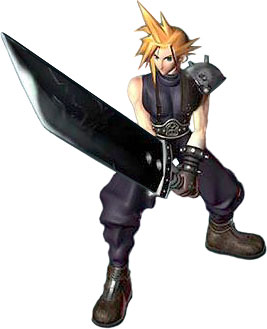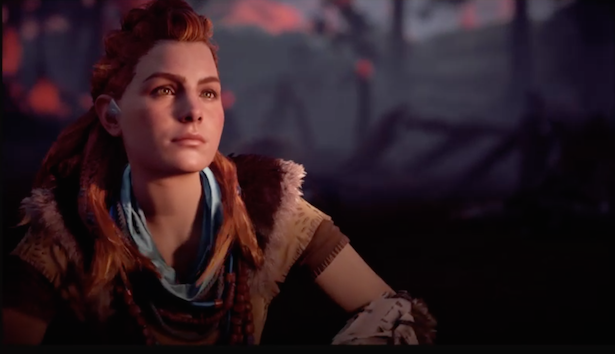It’s Halloween (well, close enough) and my Facebook news feed is full of articles and videos about objectification. From the viral video of the woman walking around NYC to Buzzfeed lists of inappropriate tween getups and this gem of a costume, everyone is talking about bodies and how people should be treating them (and aren’t). And, if you dare to venture to the comment sections, there are plenty of confused or downright angry folks on the other side who just don’t understand the fuss.
I’ll admit, it’s been disheartening to read comments responding to Soshana Robert’s catcalling video with “if she didn’t want attention, she could have put on a burqa or stayed inside.” I cringe a little more each time someone refuses to listen to someone saying they are uncomfortable or harassed because “I say hi to people on the street and smile at them and I’m just being polite!” As a woman, it seems so obvious to me because it’s such an ever-present part of my life. I have a whole cache of tactics for dealing with unwelcome attention because that’s just how things go.
But it’s Halloween, and I have a confession to make that complicates the whole issue. I like wearing sexy costumes.
I rage at catcalling videos and I applaud the women at the Slut Walks who proudly proclaim “Still Not Asking For It,” and I will lose  my voice from singing at the top of my lungs to P!nk’s “U & Ur Hand” (We didn’t get all dressed up just for you to see…quit spilling your drinks on me. No. Seriously. Quit spilling beer on me. It’s gross, and this costume cost money to put together). But on Halloween, I like dressing up and getting some attention. Yes, I pick costumes that remind me of things I enjoy or that are funny or that I’m financially able to craft, but I also pick them because I think they’ll be flattering. In that instance, I am getting all dressed up for others to see. And, just maybe, that can feel like a mixed message to guys who are trying to understand how they are supposed to respond to the signals they’re getting from the women around them. And I think I can understand why those same men have a hard time understanding why feminist critiques of video games are often geared towards the appearance of things, such as when female characters’ armor is impractical or when women in the background are displayed sexually. So I want to try and address the dissonance these situations create.
my voice from singing at the top of my lungs to P!nk’s “U & Ur Hand” (We didn’t get all dressed up just for you to see…quit spilling your drinks on me. No. Seriously. Quit spilling beer on me. It’s gross, and this costume cost money to put together). But on Halloween, I like dressing up and getting some attention. Yes, I pick costumes that remind me of things I enjoy or that are funny or that I’m financially able to craft, but I also pick them because I think they’ll be flattering. In that instance, I am getting all dressed up for others to see. And, just maybe, that can feel like a mixed message to guys who are trying to understand how they are supposed to respond to the signals they’re getting from the women around them. And I think I can understand why those same men have a hard time understanding why feminist critiques of video games are often geared towards the appearance of things, such as when female characters’ armor is impractical or when women in the background are displayed sexually. So I want to try and address the dissonance these situations create.
Objectification is this act of taking someone who is human and treating them as if they were inanimate. It involves seeing individuals as things that can be owned, used, bought, sold, or broken, rather than as people with their own motivations and desires. We can admire people and we can admire objects, but these types of admiration are different.
When we admire objects, we are mainly interested in how those objects could benefit us. When I compliment another woman’s skirt, the thought in my head is “I wonder if they have my size.” If I admire how someone decorated their house, I’m immediately storing away what I see for ideas on how to tweak my own place later. It’s not that I necessarily covet the exact item that the other person has, but I still want to obtain it in some form. And that’s fine…for things.
This is ultimately unacceptable when it comes to people. It’s fine to think that someone is beautiful or handsome or sexy. It’s even fine to tell them that (and, if that’s what they were going for, they might really appreciate the compliment). But if the compliment is only in service to get something you want…that’s where things cross a line. If I wear a sexy costume, I want it to be liked…but that doesn’t mean I’m inviting someone home with me. My standards and boundaries and comfort levels don’t change based on how form-fitting my outfit is or is not. Complimenting me doesn’t mean that I owe you face time (or anything else, for that matter).
Unfortunately, men and women both are often trained to think that female bodies are objects. Statistically, clothes make very little difference when it comes to rape because rape is about power, not sexual attraction…yet victims of rape and harassment are almost always confronted with questions about how they dressed or, as with the burqa commenter above, lectures on what they could have done differently to prevent the act. We have been trained to see certain actions as “signals” that a woman wants sex, and will often argue that those actions supersede any verbal protests saying otherwise. And, to complicate matters further, we have been trained to put women’s sexual desires into a binary…either they are frigid prudes who don’t want sex, or they’re sluts who are asking for it. There’s very little room for a woman who, say, wants to be seen as attractive but isn’t going to jump into bed with the first stranger to smile at her.
Of course, the real-life implications of objectification are pretty obvious when it comes to Halloween costumes, but does it really matter how women are dressed in games?
In some ways, this becomes a Catch 22. To say that seeing scantily clad women leads to sexism is about as accurate as saying that first-person shooters lead to violence (that is to say…not accurate at all). But the  overwhelming presence of sexualized women in games is a symptom of a much larger issue. In some ways, it’s fair to say that unrealistic armor doesn’t necessarily undermine how we view female fighters in games. After all, if we were being realistic there’s no way in hell Cloud would ever have been able to lift that sword. But games (like sci-fi and fantasy novels or shows) use real-world experiences as the basis for their mechanics, even if they take place in fantastical and imaginative settings. Both skimpy armor and massive weapons are “unrealistic” because they are exaggerated forms of real things. But, in the “real” world, we get nervous when someone is carrying a big weapon (phallic, much?), and the less clothes a woman is wearing, the less serious we take her. These expectations aren’t a one-to-one transfer to fiction, but it does have an impact…and the more we see these portrayals (in fiction or in reality), the more it reinforces our beliefs, like an echo chamber drowning out anything else.
overwhelming presence of sexualized women in games is a symptom of a much larger issue. In some ways, it’s fair to say that unrealistic armor doesn’t necessarily undermine how we view female fighters in games. After all, if we were being realistic there’s no way in hell Cloud would ever have been able to lift that sword. But games (like sci-fi and fantasy novels or shows) use real-world experiences as the basis for their mechanics, even if they take place in fantastical and imaginative settings. Both skimpy armor and massive weapons are “unrealistic” because they are exaggerated forms of real things. But, in the “real” world, we get nervous when someone is carrying a big weapon (phallic, much?), and the less clothes a woman is wearing, the less serious we take her. These expectations aren’t a one-to-one transfer to fiction, but it does have an impact…and the more we see these portrayals (in fiction or in reality), the more it reinforces our beliefs, like an echo chamber drowning out anything else.
So, before anyone gets up-in-arms about games censorship, keep in mind that I’m not necessarily advocating the removal of all eye candy from games. What I do advocate for, however, is a redefinition of “sexy” to stop including consent and start including people with minds and skills that are just as admirable as their outside traits. And many games have already started to do exactly that…from Skyrim’s impressive array of armor to a pants-clad Lara Croft in the rebooted Tomb Raider (I challenge anyone to say she isn’t still damn sexy). And when you see that attractive woman on the street or in a “sexy” costume, smile at her if you choose…and then go about your day without expecting that your appreciation means she owes you any in return. Because the only thing sexier than that sexy pizza costume is respect.




